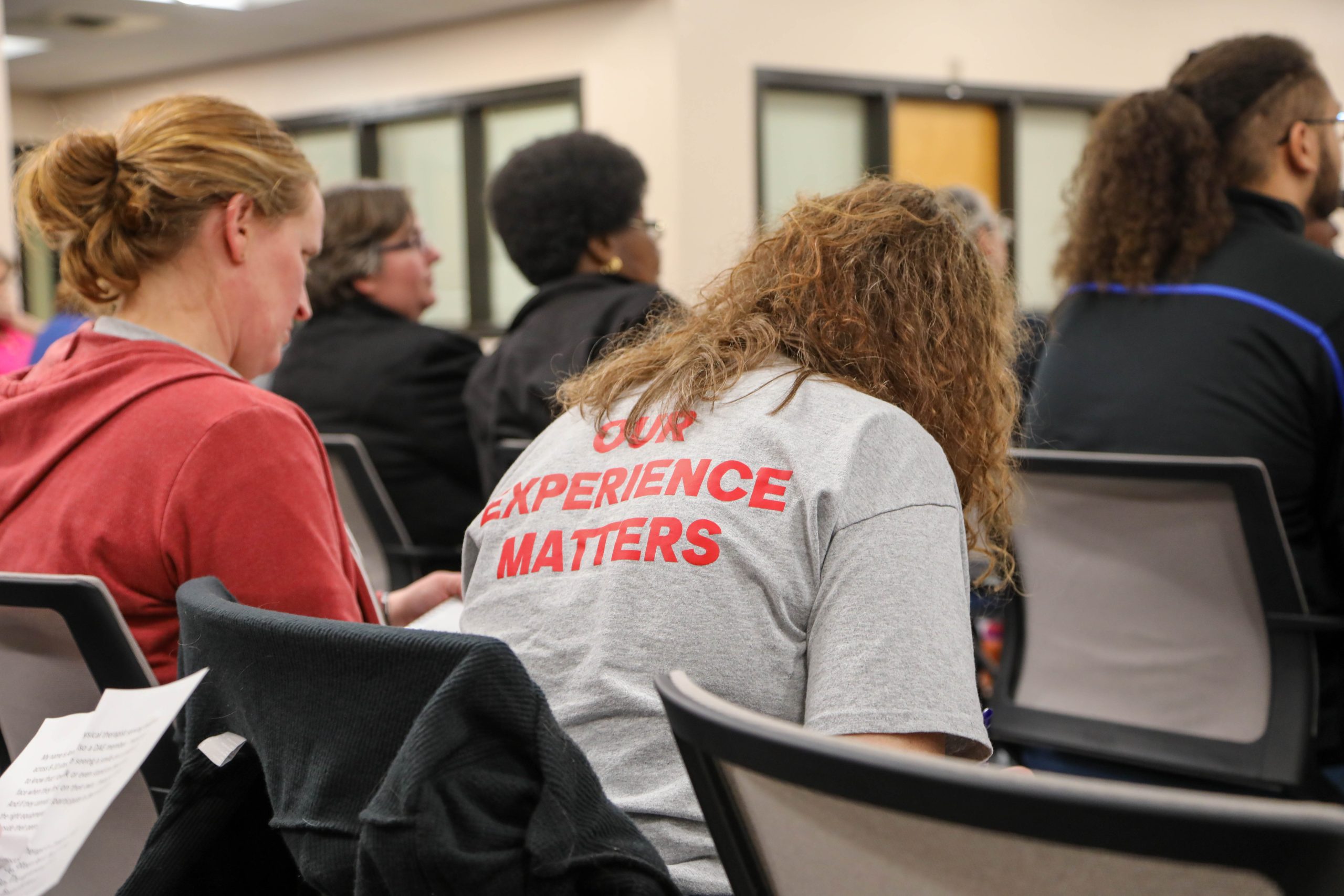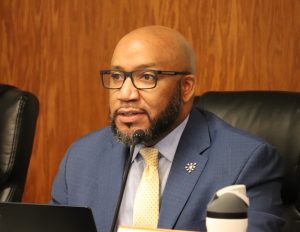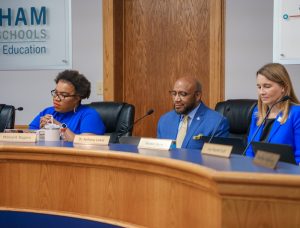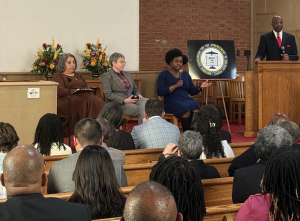Workers in Durham Public Schools will continue to receive raised pay rates through the end of the month. Thursday’s unanimous decision from the Durham Public Schools Board of Education, which affects paychecks for classified staff, came just minutes after the district announced that all schools are closed Friday due to transportation staff shortages.
Also Thursday, Durham Public Schools named Catty Quiroz Moore as interim superintendent following former Superintendent Pascal Mubenga’s resignation the day prior. Moore is a member of the North Carolina State Board of Education and served as the superintendent for Wake County schools until 2023.
Mubenga stepped down amidst the fallout from an “accounting error” that caused pay raises, which were not accounted for in the district’s budget, to be revoked for 1,300 classified staff in mid-January. Staff received the raises in October. Mubenga’s resignation followed that of Paul LeSieur, the school system’s former Chief Finance Officer.
Of the vote to maintain the raised salaries, Chair Bettina Umstead said, “As we continue to wrestle with this decision, we’re getting closer to payday. We want to make sure folks have a sense of what they’ll be getting.”
At the board’s monthly work session on February 8, dozens of classified staff — a category including cafeteria workers, instructional assistants, janitors and more — gathered in hopes of learning how much they would be paid in February. Many wore pins that read “Union Strong” and shirts detailing their role in Durham Public Schools. The crowd had thinned since the previous week’s meeting when, after hours of impassioned discussion, the board voted to delay its decision on pay for February.
The Durham Association of Educators, a local teacher’s union representing many of the workers, said on Facebook, “Thank you to the Board of Education: for listening to workers’ voices, committing to transparency and collaboration going forward, and keeping promises around pay.” The union has been a strong presence since pay disputes began in January, organizing rallies and “sick-outs” that have caused widespread school closures. The union says it did not call for a day of protest Friday.
After deciding on pay for February, the board voted 5-2 to push their decision on salaries for the remainder of the fiscal year to February 22.
Board member Emily Chavez voted in favor of the delay. Citing concerns about a lack of information, Chavez said, “We do need to know where our money is gonna come from before we spend it. That is fiscal responsibility.”
Continuing to honor the raises through the end of June would cost approximately $9 million more than was budgeted, according to a recent report by the Tharrington Smith law firm. The report, released Wednesday, blamed the salary issues largely on a “failure of communication” from former CFO Paul LeSieur about the true cost of raising classified workers’ salaries.
“The finance officer knew in February 2023 that the cost of the pay raises could rise from $10 million to $20 million based on how years of service are calculated,” the report states. “That variability was never communicated to the School Board and budget proposals consistently showed the cost as approximately $10 million.”
The report also states that the superintendent knew of the pay discrepancy in November, but did not inform the board until January after the new, more generous paychecks had already been sent.
At the meeting, many workers said they were dissatisfied with the board’s decision and had hoped to be able to plan around salaries for the rest of the year.
Angelique Parkstone, the cafeteria manager at Glenn Elementary School, said during public comment that she relied on the extra money from her raise to help support her father’s cancer treatments. “I was really looking for another job until I got the raise,” she said. “Because I am way underpaid for my twenty-plus years.”
Luna Gomez, a student at Holt Elementary School, was the youngest speaker at Thursday’s meeting. She stood before the board, her head barely taller than the podium. “I’m tired of this nonsense,” she said.
“[Workers] need to pay rent, buy food and purchase clothes. Some teachers have kids, who also need food and clothes. I’m tired — we’re tired — of hearing your lies.”
Learn more: Read our chronology of the Durham Public Schools’ payroll crisis.
Above: At a Feb. 8 meeting, school system employees await decisions by the Durham school board about paychecks for February and beyond. Photo by Abigail Bromberger — The 9th Street Journal
Nina Moske




